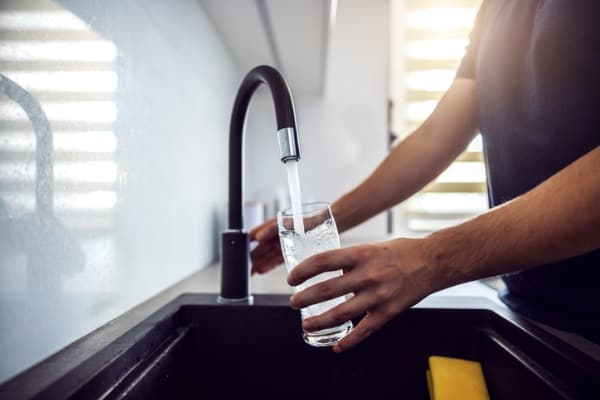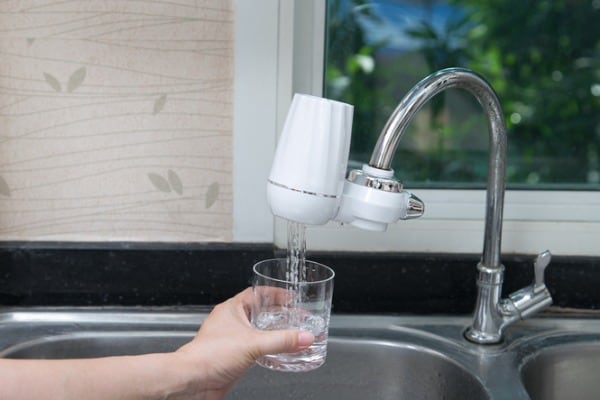
Water is life, we all say. It is one of the most important components of the earth, if not the most important. Water is considered necessary for life, that is why planets that are considered uninhabitable usually have no water on them.
As humans, we use water for basically everything. To keep clean around the house and everywhere, as coolants during hot weather when we down litres of cold water, as an ingredient for every meal, as a recreation activity when we jump in pools or swim at the beach. Water makes the world exist as it is today.
This is why water hygiene is of utmost importance to healthy living. Clean water means that you won’t contract diseases, that your meals won’t be contaminated and that your general health will be in great condition.
Organisms that cause diseases exist in household water systems and they pose a huge threat to health because they enter directly into the body through the water. They can cause waterborne diseases that can lead to severe consequences like death even. That is why disinfection should be carried out when needed to prevent these diseases.
This guide will provide you with tips that can help you disinfect and decontaminate your home water system so all water used in the home can be safe and healthy.
Quick Navigation
Consult A Water Specialist
This is an important first step before choosing a disinfection method for your household. A common mistake many people make is trying to DIY the whole process – this is a bad idea for many reasons. You could end up making things worse because you don’t have the skills and experience to handle the process. This is why it is always in your best interest to hire a water specialist.
The best part is that finding a water specialist is as easy as pie. You can ask friends and family members for recommendations, there’s a good chance that they’ve worked with a water specialist at some point in time. You can also do web searches for the best water specialists in your area or even look up professionals at Wellness Water Filtration Systems and these people will help you make informed and cost-effective decisions. A water specialist is trained in finding out if your water system has any issues and the best method to disinfect with. Most water specialists have years of experience doing what they know how to do best and they can easily tell what is wrong with your water and how to fix it.
Chlorine Is Your Friend
Yes, you read that right! Chlorine is a common and inexpensive method of disinfecting your home water system. This method is effective in killing disease-causing organisms, some kind of viruses, but, sadly, does not kill certain Protozoa. The chlorine also helps to remove some bad odor from the water. Chlorination can be done after your water system is evaluated by professionals. The process is of two types: the first one is called shock chlorination, where a potent chlorine solution is pumped into the household water system to kill microorganisms on a one-time basis. This is recommended when new parts are installed in the water system.
The second one is continuous chlorination. which is required when there is a recurrence of bacteria in the water. It helps to continually combat the bacteria. You should never try to do the chlorination process yourself without a specialist because your home water system might require a different type of chlorination than the type you did. So, it’s always a good idea to let a water specialist handle chlorination, no matter how simple it may seem.
Ultraviolet Light
Some pathogens are resistant to chlorine, and that’s where Ultraviolet lights come in handy. UV light has a long history of being used to disinfect water supply but it has only become recently available for home water systems. This is a form of water treatment that uses a mercury arc lamp of low pressure to emit UV light which then kills pathogens in the water.
The main advantage of this method is that it disinfects the water without using any chemicals and since some pathogens in water are resistant to chlorine, it is an effective method for killing those pathogens.
UV treatment is highly effective but the disinfection only occurs within the unit that is being disinfected and not throughout the water system and sometimes residual disinfection is necessary for the form of chlorination. A water specialist will usually tell you the best kind of alternative to use instead of or with a UV system.
The system can be at the point of entry, treating all water entering g into the house or it can be at one source like a single tap where it serves as a final disinfection method. The single-source option is less expensive than the point of entry option for the whole house.
Combine Methods

What if you simply combined all the methods for better results?
Many times one method of disinfection is never enough as most of them have their limitations. This can result in you catching diseases that your type of water treatment is not effective against.
Chlorination when not done correctly can lead to an unpleasant taste and smell in the treated water, so it can be combined with filtration to remove huge particulate matter first before chlorine is introduced to destroy the microorganisms.
Other combinations can be done like UV light treatment and chlorination, and a host of others. Again, you should never attempt to do this on your own. Combining decontamination methods is no child’s play and is always best left to the experts.
Keeping your H20 house system is critical as it affects the overall quality of your health and day-to-day activities. While there are several decontamination methods, these are just a few tips for treating your home water system. You can consider other methods like distillation or even pasteurization which can serve equally effective purposes, supplying clean water to the home and keeping everyone healthy.
